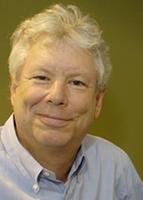 Richard H. Thaler, who won the Nobel Prize in Economic Science yesterday for his contributions to behavorial science, has written several bestselling books and had a role in The Big Short explaining the financial crisis.
Richard H. Thaler, who won the Nobel Prize in Economic Science yesterday for his contributions to behavorial science, has written several bestselling books and had a role in The Big Short explaining the financial crisis.
According to the New York Times, the Nobel committee said that Thaler's research had "taken the field of behavioral economics from the fringe to the mainstream of academic research and had shown that it had important implications for economic policy." The Times added, "Professor Thaler played a central role in arguing that seemingly irrational behavior could not be ignored and that people are not rational even when they try to be."
Thaler, a professor at the University of Chicago's Booth School of Business, said the basic premise of his theories was that "in order to do good economics you have to keep in mind that people are human."
Asked how he would spend the prize money of about $1.1 million, he replied: "This is quite a funny question. I will try to spend it as irrationally as possible."
Thaler's most recent title was Misbehaving: The Making of Behavorial Economics, published in paperback last year by Norton and shortlisted for the Financial Times & McKinsey Business Book of the Year Award in 2015.
Nudge: Improving Decisions About Health, Wealth, and Happiness, written with frequent collaborator Cass R. Sunstein, has sold more than 750,000 copies. In 2009, it was published in paperback in a revised and expanded edition by Penguin Books.

